
Poor social conditions badly affect the relationship between a married couple, when the husband, who is desperately searching for work, fails to notice the terrible sacrifices made by his wife when she accepts a job at a local inn.
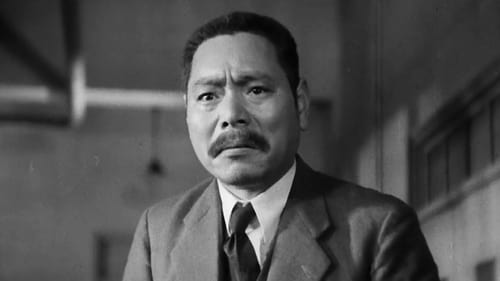
가난한 교사인 호리카와 슈헤이는 돈도 미래에 대한 희망도 없는 현실이다. 그럼에도 불구하고 그의 아들 료헤이의 성공을 위하여 온 열정과 생을 바치는데...
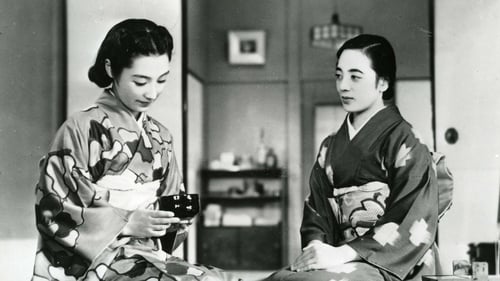
한 가족의 몰락과 재건에 관한 이야기를 담고 있는 이 작품은 당시 흥행과 작품성에서 모두 성공한 초기작으로 장면간의 전환 또는 휴지부로 기능하는 여백 쇼트의 사용, 움직임이 없는 정적인 카메라 등 가장 오즈적이라고 특징지을 수 있는 후기 작품들의 양식과 내러티브 형태가 특징적으로 드러나는 작품이다. 경제계의 거물이었던 도다씨의 갑작스러운 죽음 이후 둘째 아들 쇼지로는 중국 천진으로 돈을 벌기 위해 떠나고 남은 도다 부인과 막내 딸 세츠코는 귀찮은 존재로 외면당한 채 형제들 집을 전전하다 결국 처분조차 힘든 바닷가의 낡은 집으로 옮겨간다. 도다씨의 기일을 지내기 위해 천진에서 돌아온 쇼지로는 어머니와 여동생에 대한 형제들의 태도에 대해 분통을 터트린다.

젠타와 산페 형제는 아버지의 도시락을 서로 가져다 드리겠다며 싸우는 등 늘 티격태격한다. 특히, 타고난 악동인 동생 산페는 타잔 소리를 내며 골목을 휘젓고 다니는 골목대장이다. 그러던 어느 날, 아버지가 공문서 위조 혐의로 체포되어 감옥에 가고 만다. 형제의 눈부신 여름날이 돌연 끝나버리고, 산페는 시골로 보내진다. 오로지 집에 돌아가고 싶다는 생각뿐인 산페는 시골에서도 매일 사고만 친다.

Fire guard
A Japanese screwball comedy about the battle between the sexes: two timid men, egged on by their wives, end up in a bitter duel over an expensive lace handkerchief.

Soichiro, Sohachi's son
Kinuyo is a daughter of doctor of Chinese medicine, and Yasuo is a son of surgeon. Their families always fight like cat and dog. This relationship is ancestral. Although Kinuyo and Yasuo love each other, they have different thoughts toward treatments.

Tomitaro, Yoko's uncle
Three men fall in love with the same young girl who works in a tonkatsu restaurant in the Shitamachi district of Tokyo.

The eldest daughter of a noble family is in love with an aviator while being courted by a fellow aristocrat she thinks is a dullard. This part is told from the perspective of Akemi.

아리가토 씨는 젊고 친절한 버스 운전사로, 그가 모는 버스는 가난한 해안가 마을에서 산을 넘어 도시로 향한다. 그는 좁은 길에서 길을 비켜주는 주민들에게 언제나 ‘고맙습니다’라는 인사를 전한다. 딸을 대처로 보내려는 걱정 많은 어머니와 그 딸, 아리가토 씨에게 추파를 던지는 여인 등 오늘도 다양한 승객들이 아리가토 씨의 버스에 오른다.
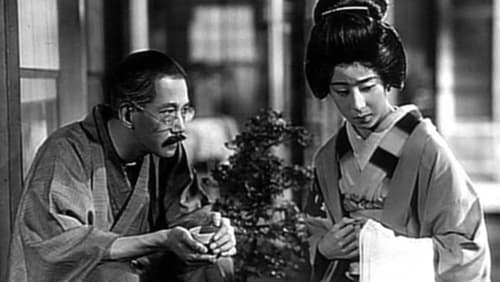
Family drama. A middle-aged father has just married off his third daughter, but still has his nine year old son to raise whom he resents as he was unwanted. (British Film Institute)

If you throw this child away
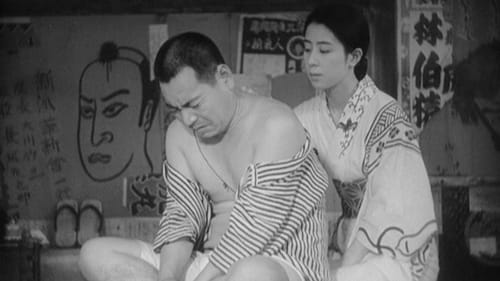
Tomibo's father
오즈 야스지로 감독의 1934년 무성 영화이다. 사카모토 타케시 등이 주연으로 출연하였다. 키네마 준보 영화상을 수상했다.
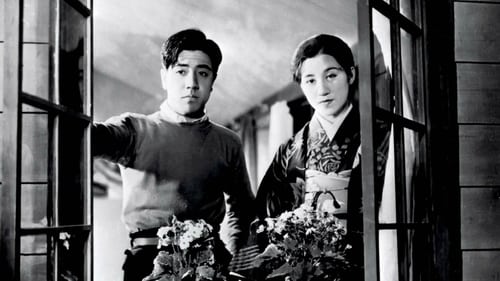
Butler
Mikio Naruse’s final silent film is a gloriously rich portrait of a waitress, Sugiko, whose life, despite a host of male admirers and even some intrigued movie talent scouts, ends up taking a suffocatingly domestic turn after a wealthy businessman accidentally hits her with his car.

Heinosuke Gosho evokes in this film the family conflicts engendered by the eternal problem of a father who projects his professional desires on the life of his son. The sister Machiko is the essential link that will allow everyone to apologize to each other and achieve reconciliation

Barber
Two Tokyo co-workers come across a destitute young lady in search of a place to live.
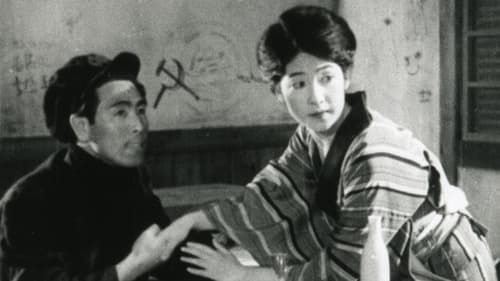
In the formally ravishing Every-Night Dreams, set in the dockside neighborhoods of Tokyo, a single mother works tirelessly as a Ginza bar hostess to ensure a better life for her young son—until her long-lost husband returns.

Secretary
평범한 직장에 다니는 도키코와 건달 조지는 연인이다. 도키코는 조지가 범죄 세계에서 발을 빼기를 바라지만 조지의 마음을 돌리기는 쉽지 않다. 어느 날, 조지가 친구의 여동생인 가즈코와 가까워지자 도키코는 두 사람을 떨어뜨려 놓으려 한다. (2020 한국시네마테크협의회 - F 시네마 필름 상영 워크숍)

Man
"The Dancing Girl of Izu" tells of the story between a young male student who is touring the Izu Peninsula and a family of traveling dancers he meets there, including their youngest girl. The student finds the naïve girl attractive even though he eventually has to part with the family after spending memorable time together.

Hiyama
This pair of gentle yet witty and inventive comedies from the director of The Neighbour's Wife and Mine typify both the formal experimentation of early Japanese sound cinema and the social milieux that Shochiku tended to depict. 'Virtually plotless, and feeling more like comic sketches than fully developed stories,' writes Arthur Nolletti, Jr, 'these light comedies, or farces, take a wholly trivial matter (often a socially embarrassing situation) and use it as a springboard for a succession of gags.' Much of the films' distinction comes from the wit of Gosho's direction, the imaginative use of the new sound technology and the charm of the acting, particularly of the heroines (Kinuyo Tanaka in Bride; Hiroko Kawasaki in Groom). Yet in both films, Gosho finds room for some shrewd observation of character and environment, subtly exploring the values and assumptions of the suburban petit bourgeoisie.

Company president
A student comes up with various schemes to avoid paying a tailor the money he owes him. Considered to be a lost film.

Kato's splendid mustache is an obstacle when it comes to finding a job. However, he gets a job as a security guard at a construction site. The president of the construction company tries to grow a mustache like Kato's and, failing, orders Kato to shave off his.
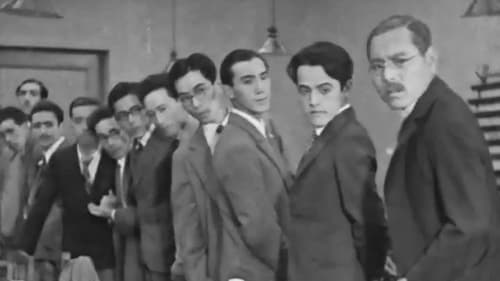
Shachou
대학을 졸업한 오카지마는 보험회사의 내근사원, 그러나 연로한 동료사원이 퇴출당하는 것을 보고 사장에게 반감을 갖게된다. 하지만 그 결과 그도 직업을 잃고만다. 지금은 서양식당을 운영 하지만 학생시절의 선생님이었던 오무라가 오카지마를 고용한다. 그리고 오카지마가 전단지 뿌리는 것을 본 그의 아내는 울음을 터트린다.
















